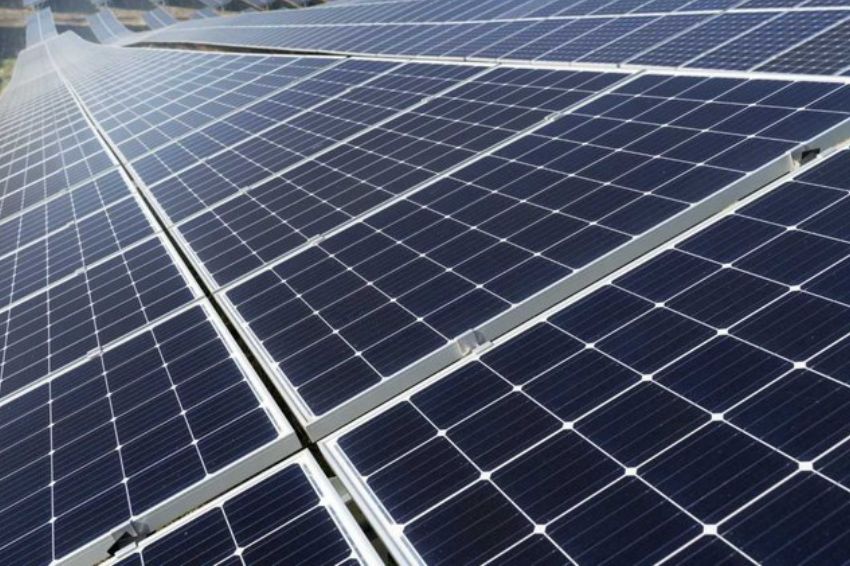In March 2021, the Law 14,120/2021, which predicted transition rules for the end of perception of discount on TUSD/TUST (Tariffs for the Use of Distribution and Transmission Systems).
For generating plants entering the electrical grid, maintenance of the discount would be granted to enterprises that requested a grant by March 2, 2022 and that, cumulatively, they began operating all their generating units within a period of up to 48 months, counting from the date of issuance of the grant.
The rule would also apply to existing enterprises, already benefiting from the discount, and wishing to expand the installed capacity of their generating plants.
The prediction of these transition rules created a race in the electricity sector to make projects with a competitive tariff advantage viable. This is because the discount on the use of Fio would be around 50%, applied to the contracted demand in generation or consumption associated with the plant's energy.
It turns out that the mobilization of agents for grant requests that aimed to maintain the discount on TUSD/TUST congested the technical sectors of ANEEL (National Electric Energy Agency), as well as its support institutions.
One of the main bodies affected was the ONS (National Electric System Operator) itself, responsible for issuing access information that used to inform grant requests. These documents indicated – but did not guarantee – the existence of a flow margin for the operationalization of the project in question in the basic network.
To resolve any delay in issuing access information, the Decree No. 10,893/2021. With this, the grants requested with the aim of maintaining the discount on Fio started to be granted with the possibility of waiving the presentation of access information, leaving ANEEL to regulate the topic.
Thus, once the authorization grants were issued by ANEEL for accessors to the Basic Network, the subsequent steps involved requesting an access opinion to the ONS, with the signing of the CUST (Transmission System Use Agreement) and the CCT (Core Sharing Agreement). Transmission Facilities). These documents consolidated the conditions and guarantees for the flow margin of the generating plants.
However, a regulatory obligation had to be fulfilled at the time. The beginning of the CUST period should not be less than the start of the test operation of the generating plants, a period that should be in accordance with the implementation schedule published in the granting of the project.
Among several market factors, largely related to project financing difficulties, there was a movement by sector agents requesting the postponement of the implementation schedules of generating plants.
For this purpose, it was argued that free enterprise and the generator's business risk should be protected in better conforming its project within the ACL (Free Electricity Contracting Environment), including in relation to implementation deadlines, which could be disconnected from the grant schedules.
In various judgments carried out by ANEEL's Board of Directors, it was considered that changing the grant schedule, without analyzing the exclusions of liability that supported the requests, would imply the undue postponement of the beginning of the CUST's validity.
Consequently, the movement to ensure the connection conditions and the flow margin of the generating plant without paying connection charges would unfairly burden the cost sharing of the electricity system, notably compromising the basic network funding budget.
Among so many requests requesting changes to the schedules of generating plants, Normative Resolution No. 1,038/2022 was published on 08/15/22, in regulation of Decree No. 10,893/2021.
The Resolution establishes procedures and guidelines for the generation grant request process for projects that are candidates for the Fio discount, regardless of whether or not they were granted with a valid access document.
A Normative Resolution No. 1,038/2022 provides the following rules for implementing projects:
- Setting the deadline for entry into commercial operations at 54 months, counting from the date of issuance of the grant. The deadline may be extended if the access document indicates the need for connection within a longer period of time, and the guarantee of faithful compliance must be maintained throughout the plant's implementation period;
- The 54-month period applies to grants that will be issued and that have been filed by March 2, 2022 and to current authorization grants, with projects in the implementation phase, regardless of the specific authorization act issued for the extension;
- The extension of the 54-month period does not exempt the generator from punitive processes for possible non-compliance with the conditions stipulated in the grant and by Normative Resolution No. 846/2019, mainly due to delays already configured or due to the verification of the unfeasibility of the project;
- The extension of the 54-month period is not applicable to projects that have already signed CUST/CUSD or to projects that have negotiated energy in the ACR (Regulated Electricity Contracting Environment);
- The application of the discount on TUSD/TUST is subject to compliance with the requirements established by law (request for grant by March 2, 2022 and entry into commercial operation within 48 months), and there is no claim to exclude liability in cases where the connection is not implemented within this period;
- Grant requests that have been submitted with a valid access document and in accordance with the plant subject to the grant request will be authorized to establish the transmission network of restricted interest from the generator to the connection point, as defined in the access document. ;
- Grant applications that have opted for exemption from presentation of the access document must sign a Declaration Term, with the consent that the connection of the enterprise, changes to deadlines in its implementation or its technical characteristics are carried out at the agent's own risk. ;
- In the latter case, the grant will not include authorization for the establishment of the transmission network of restricted interest from the generator to the connection point and/or the DUP (Declaration of Public Utility). These authorizations will only be granted upon specific request to ANEEL, with the request informed by the presentation of the signed CUSD/CUST, the description of the network of restricted interest and the simplified single-line electrical diagram.
For those who have been following the developments of Law 14,120/21, the terms of Normative Resolution No. 1,038/2022 stamp the impression that the regulatory agency granted the margin of freedom requested by agents in the electricity sector.
However, the exercise of this power will have its business and regulatory risks. In the rules of the game in a sector that aims to be more free than regulated, it is up to the entrepreneur to manage the risk matrix of his choices, under penalty of his project becoming unfeasible.

















